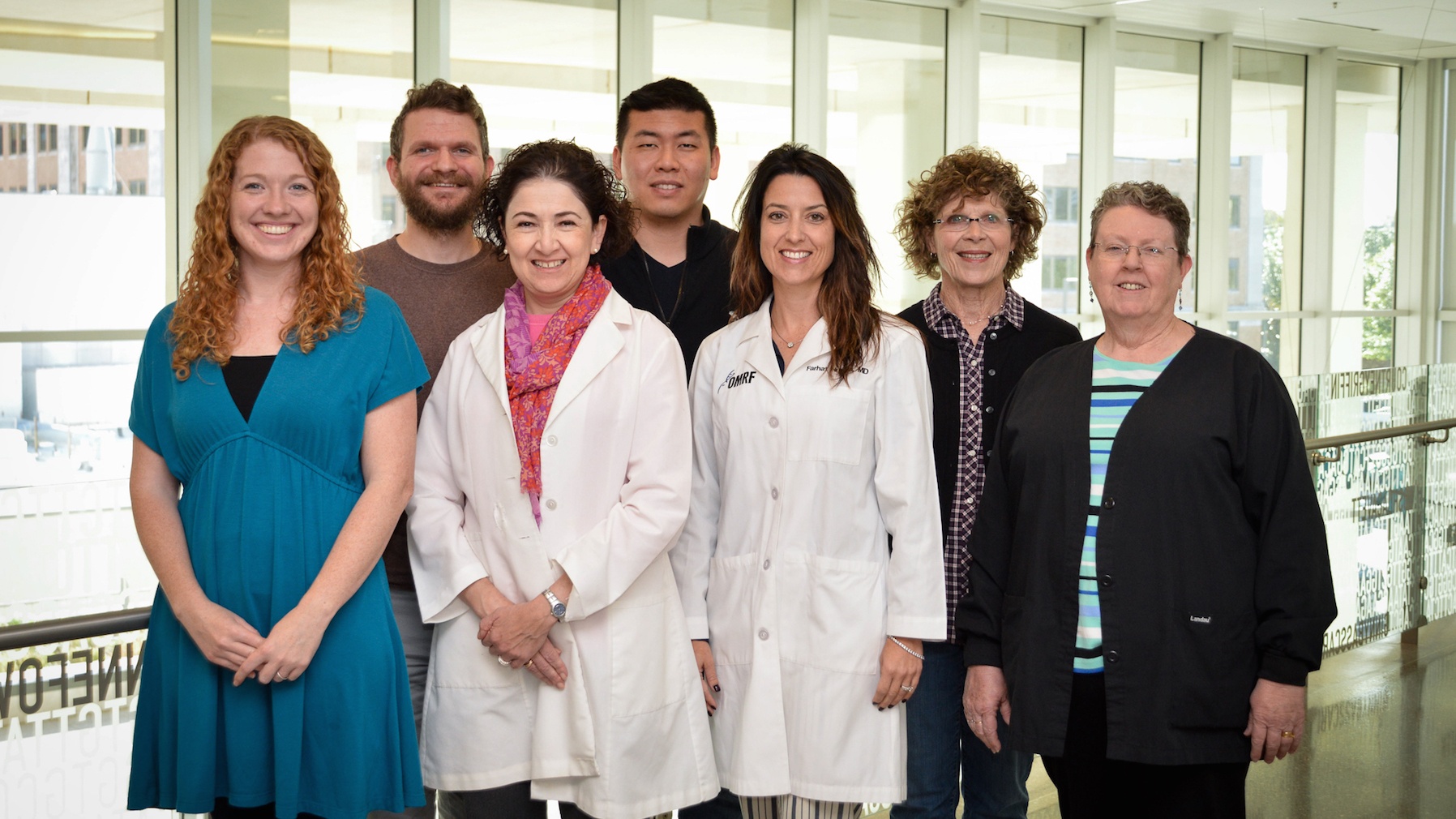OMRF is seeking volunteers who have been diagnosed with sarcoidosis, as well as healthy individuals, to participate in sample donations for OMRF’s new Sarcoidosis Research Unit.
The unit is the first of its kind in the state and the only one in the region.
Sarcoidosis is a rare disease where cells in the immune system that cause inflammation overreact and cluster together to form tiny lumps called granulomas. If too many of these granulomas form in a single organ, this can cause the organ to malfunction or even fail. These granulomas can form in the eyes, liver, skin and brain and most often are found in the lungs.
African-American and European American individuals who have been diagnosed with sarcoidosis, as well as healthy African-American and European American people with no history of autoimmune disease, are eligible to participate.
OMRF scientist and Sarcoidosis Unit Director Courtney Montgomery, Ph.D., said sarcoidosis strikes 39 in 100,000 African Americans, versus only 5 in 100,000 Caucasians. A recent study showed that the mortality rate, particularly among women, is nearing 7 percent.
This disease is poorly understood currently but is thought to involve both genes and environmental factors, Montgomery said. OMRF is working to identify the genetic factors that lead to the disease in order to improve diagnosis, treatment and disease outcomes. “To achieve these goals, we need participants to help us learn more about sarcoidosis,” she said.
Participants will undergo a screening process, complete questionnaires, and donate a small blood sample to be used for research. Participants must also provide consent to review medical records and request previous biopsies related to the disease.
“We are thrilled to be able to offer this option to Oklahomans,” said Montgomery, who has studied the disease for nearly 20 years. “Sarcoidosis patients are often misdiagnosed or undiagnosed. By coming here and allowing us to learn from them, they can play a key role in helping us understand the underlying biology of the condition.”
Montgomery said by having an active research team, researchers can take discoveries they’ve made and translate them into something clinically meaningful. She also said the new facility is intended to serve as a long-term resource to the public.
If you are interested in participating or would like more information about donating to the Sarcoidosis Research Unit, please call toll-free at 800-605-7447. Participants will also receive $20 per visit.



